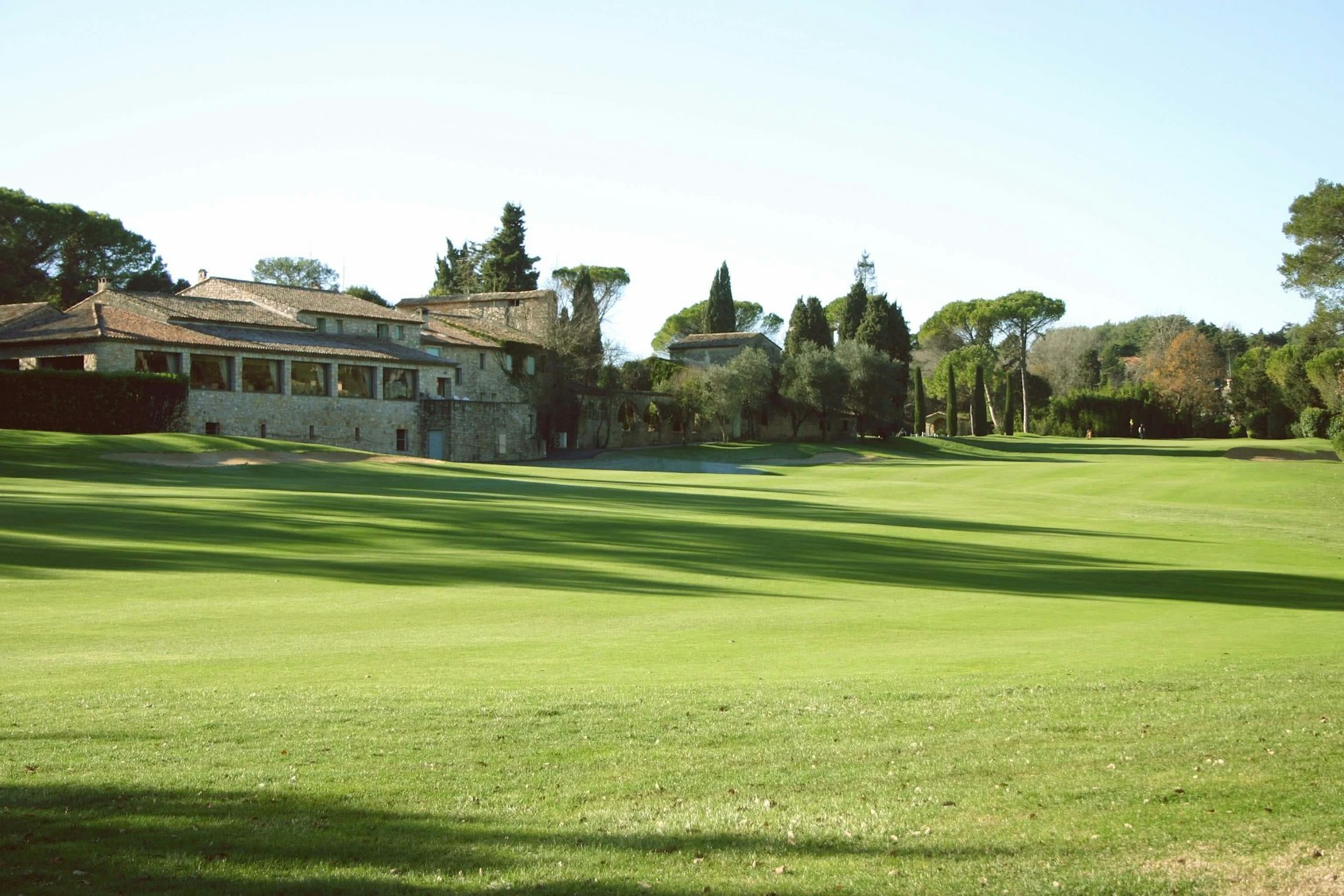It is the jewel of the golf courses on the French Riviera, "one of the best courses in Europe" said Severiano Ballesteros, himself one of the most talented golfers in the history of this sport.
Located in an exceptional setting and managed in an original way, the Cannes-Mougins golf course stands out and shines on the whole French Riviera, and is a point of attraction in the region for any player, professional or amateur.
Summary:
The history of an exceptional course
An exceptional setting
The course
The history of an exceptional course
Former olive oil press, the Cannes-Mougins golf course keeps its typical Provençal castle from that time. Thanks to famous donors, such as the Prince of Monaco and the Baron de Rothschild, the golf course was conceived in the years and accessible to the first players from 1927. Popular with noble families and rich industrial owners, the golf course fell into disuse after the Second World War, during which it was occupied by the German army.
In the 1970's, a second life began: a group of 500 people of all nationalities joined together to buy the land from the historical owners and entrusted the architects Dave Thomas and Peter Allis with the task of redesigning the entire course. As a result, more than 6,000 meters of a modern course are now attracting the world's golfing elite.
In 2015, the golf course was remodeled to meet international standards and the evolution of modern equipment.
An exceptional setting
Located, as its name literally implies, between Cannes and Mougins, but also a few minutes from Nice airport, the course offers an exceptional aesthetic setting for players. It is ranked among the 10 best golf courses in France. The course has 18 holes and extends over 6200 meters.
The course benefits from more than 200 days of sunshine per year in the region. The course is nestled in the middle of the Valmasque forest, with a river running through it and numerous water obstacles. All these advantages have earned it the nickname of "jewel of the Riviera".

High quality and ecological infrastructures
The infrastructures are as good as the setting: the restaurant is run by chef Nicolas Godebert, who offers Provencal cuisine with an international flavour to players who come to settle in after a long round. Also, the course offers very modern equipment to its players, as illustrated by the new "new lithium Tempo LI-ION" carts that the club has recently acquired.
Finally, the course pays close attention to its ecological footprint, notably through the signing of a partnership with the Office National des Forêts, which has advised the team on the management of the course's trees. Concerned about the preservation of the environment, the young director of the course, Olivier Villaeys, has also committed the company to a corporate social responsibility approach, with several initiatives, such as controlling water consumption and the use of phytosanitary products.